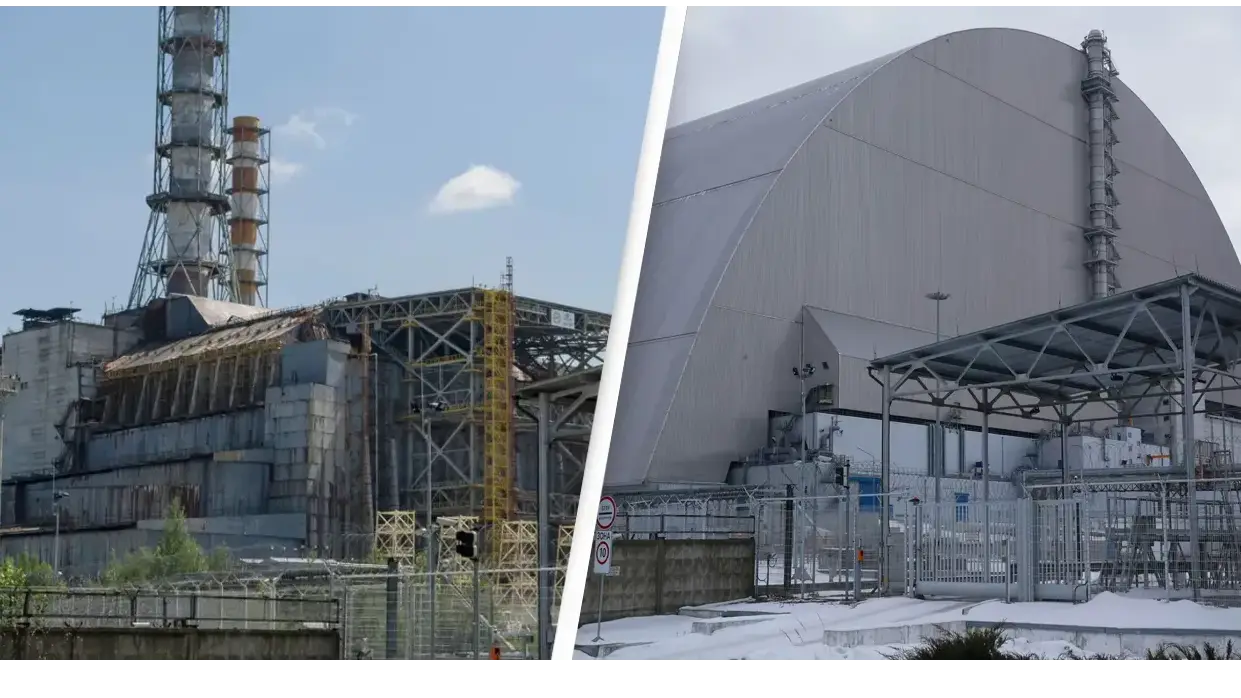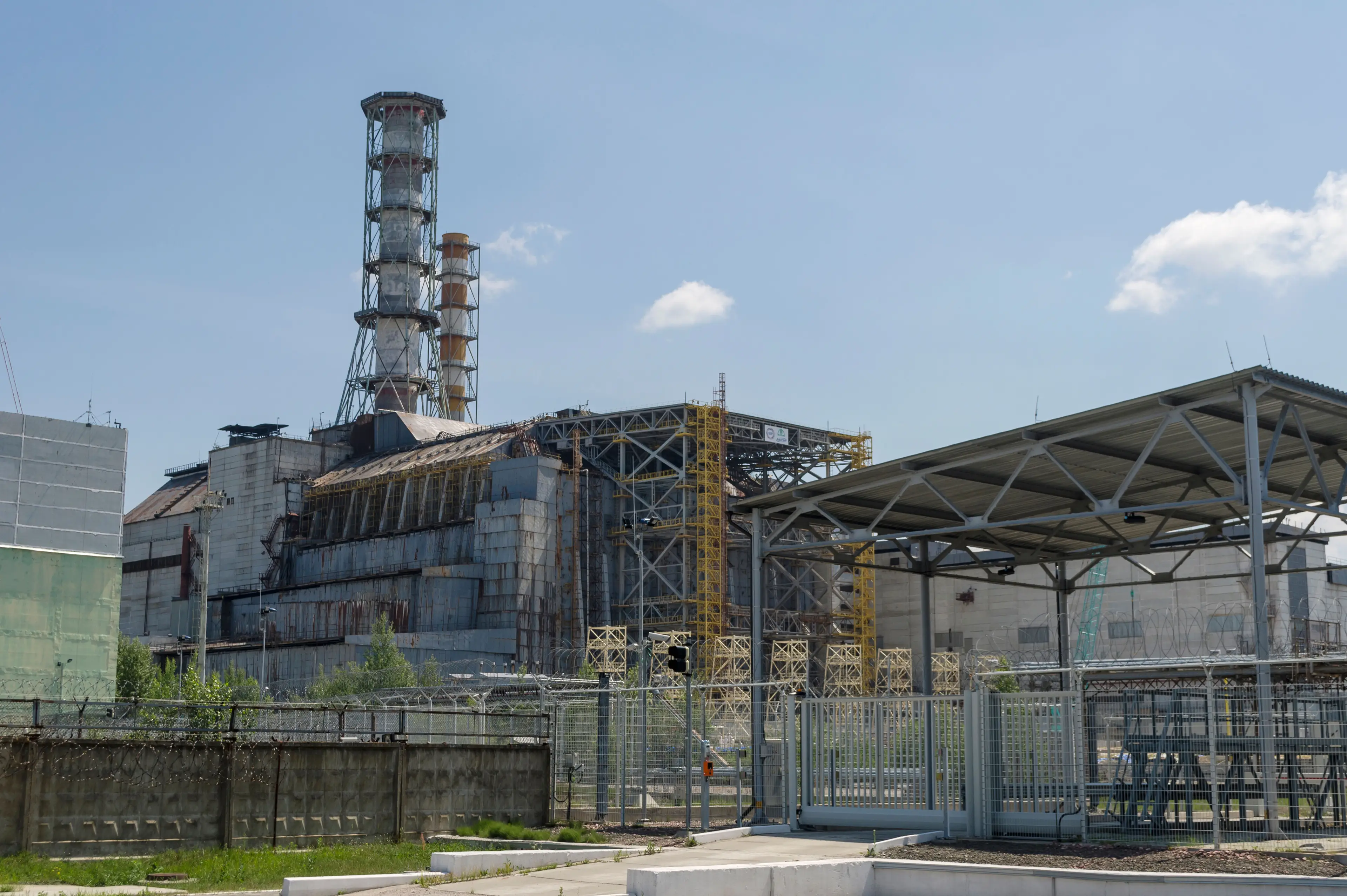
According to Ukraine’s state power operator Energoatom, the Chernobyl nuclear plant has been disconnected from the grid, igniting fears over radioactive substances being released into the atmosphere.
Energoatom confirmed that a 750Kw power line has been severed, with attempts to make repairs having been unable to take place as fighting continues.
It is not immediately clear how the blackout occurred and what is being done to resolve the problem, but The State Service of Special Communications and Information Protection of Ukraine warned that there were currently 20,000 spent fuel assemblies that needed 'constant cooling' - something only possible with electricity.
'If it is not there, the pumps will not cool. As a result, the temperature in the holding pools will increase,' the agency tweeted.
'After that evaporation will occur, that will lead to nuclear discharge. The wind can transfer the radioactive cloud to other regions of Ukraine, Belarus, Russia and Europe. In addition, there is no ventilation inside the facility', it continued, adding that 'all personnel there will receive a dangerous dose of radiation.'
Advert
Ukraine’s foreign minister, Dmytro Kuleba, also confirmed the news, explaining the only grid supplying the plant with electricity has been damaged.
'I call on the international community to urgently demand Russia to cease fire and allow repair units to restore power supply,' he tweeted.

Earlier today, Ukrainian Energy Minister Herman Hlushchenko claimed authorities were unable to find out what the radiation levels at the plant were, having been in the dark about the situation since Russian forces seized the former site of the worst nuclear disaster in history.
Troops were quick to capture the site following the launch of Russian president Vladimir Putin's 'special military operation' on February 24, with staff working at the site believed to be trying to continue their work under the control of Russian forces.
Yesterday, March 8, the UN nuclear watchdog said the systems designed to monitor nuclear waste at the plant has stopped transmitting data and claimed the same workers have been on duty since the day before the invasion, meaning they have been 'in effect living there for the past 13 days'.
Over the weekend, Russian troops also managed to seize the Zaporizhzhia nuclear power plant, having tightened their grip on Europe's largest power plant with staff said to have also been placed under their command.
According to the IAEA, eight of Ukraine's 15 reactors - including two at Zaporizhzhia - were in operation and radiation levels at the sites were said to be normal.
If you would like to donate to the Red Cross Emergency Appeal, which will help provide food, medicines and basic medical supplies, shelter and water to those in Ukraine, click here for more information.
Topics: no-article-matching, Ukraine, Russia, Chernobyl, World News